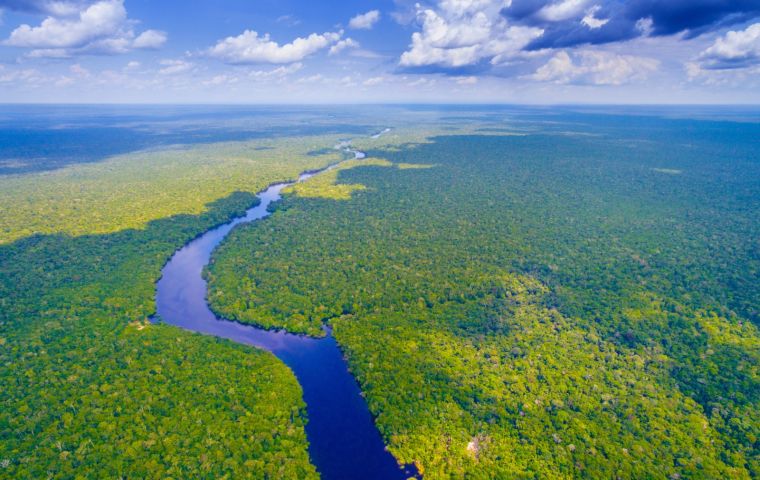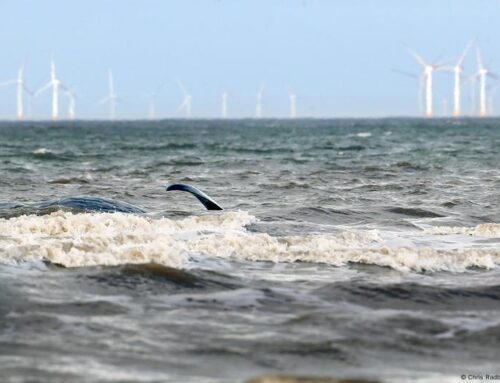Brazil enacts measures marking World Environment Day
June 6, 2025

Alckmin signed the measures given Lula’s trip to France
The Brazilian government announced Thursday a set of environmental measures, including the sanctioning of Bill 3.469/2024, which provides financial collaboration between the Federal Government and states to prevent and combat wildfires. An investment of R$ 32 million (US$ 5.72 million) was allocated for fire prevention and control in the Amazon and Pantanal.
Acting President Geraldo Alckmin signed into law the bill enabling the Federal Government to collaborate financially with states and the Federal District on actions to prevent and combat the occurrence of irregular burn-offs and forest fires. The bill also allows access to resources from the Infrastructure Support Fund for Recovery and Adaptation to Extreme Climate Events and the National Environment Fund.
Alckmin also announced an investment of R$32 million for municipalities in the Amazon and Pantanal, for fire prevention and control actions.
There is no better way to commemorate this date than by working to defend the environment and preserve our common home, he said at a World Environment Day ceremony at the Planalto Palace.
Two decrees were also signed, one creating the Soldadinho-do-Araripe Wildlife Refuge and the other extending the Costa dos Corais Environmental Protection Area, extending the maritime protection strip of the largest marine-coastal conservation unit (UC) in the country.
A third decree instituted the Marine Spatial Planning (PEM), which will map the different uses of the Brazilian ocean to preserve the sustainable use of marine resources.
Through the ministries of the Environment and Climate Change and Cities, the public call for proposals for the Resilient Green Peripheries program was also launched, so that civil society initiatives can work on measures to adapt urban peripheries to climate change, through nature-based solutions, such as transforming gray areas into green areas to prevent floods and landslides.
The ceremony also saw the launch of the online learning and training program for municipal managers: How to draw up climate change adaptation plans.
Acting Environment and Climate Change Minister João Paulo Capobianco also announced the application for recognition of the Vitória-Trindade Marine Biosphere Reserve – Central Coast of Brazil, with the United Nations Educational, Scientific and Cultural Organization (UNESCO).
The measure recognizes the area as a conservation model, with participatory, sustainable management and a focus on research and development in the use of natural resources.
The federal government also launched two public consultations to hear from the population about the socio-bioeconomy in the National Bioeconomy Development Plan and the regulation of payment for environmental services.
The National Wetlands Committee and the Amazon Seal Advisory Committee were also set up, a policy launched by the Ministry of Development, Industry, Trade and Services (MDIC) at the end of 2024 to identify and prove products made sustainably from raw materials and inputs from Amazonian biodiversity.
These are concrete measures that indicate a new, more inclusive and resilient development paradigm in line with a limit of up to 1.5ºC on global warming, as established by the Paris Agreement, Capobianco said while criticizing the approval by the Senate of Bill 2159/2021, known as the Devastation Bill. The initiative is now at the Lower House. The proposal, which changes the way environmental licensing is carried out in the country, was classified by Capobianco as a real risk and a step backwards, which puts decades of legal, scientific, and institutional advances in check. Environmental licensing is one of the most important instruments for guaranteeing Brazil’s development in a safe, fair, and sustainable way, he said. For Capobianco, the current model is a technical, preventive tool, capable of avoiding irreversible impacts, protecting lives and ensuring the responsible use of natural resources, and does not represent an obstacle.
Brazil needs modern, efficient, and transparent environmental licensing, which speeds up the process, but with technical rigor, without giving up the safeguards that protect the environment and the quality of life of current and future generations, he said. (Source: Agencia Brasil)
Categories:
Environment, Brazil.
Tags:
Geraldo Alckmin, World Environment Day.
Search
RECENT PRESS RELEASES
Related Post




